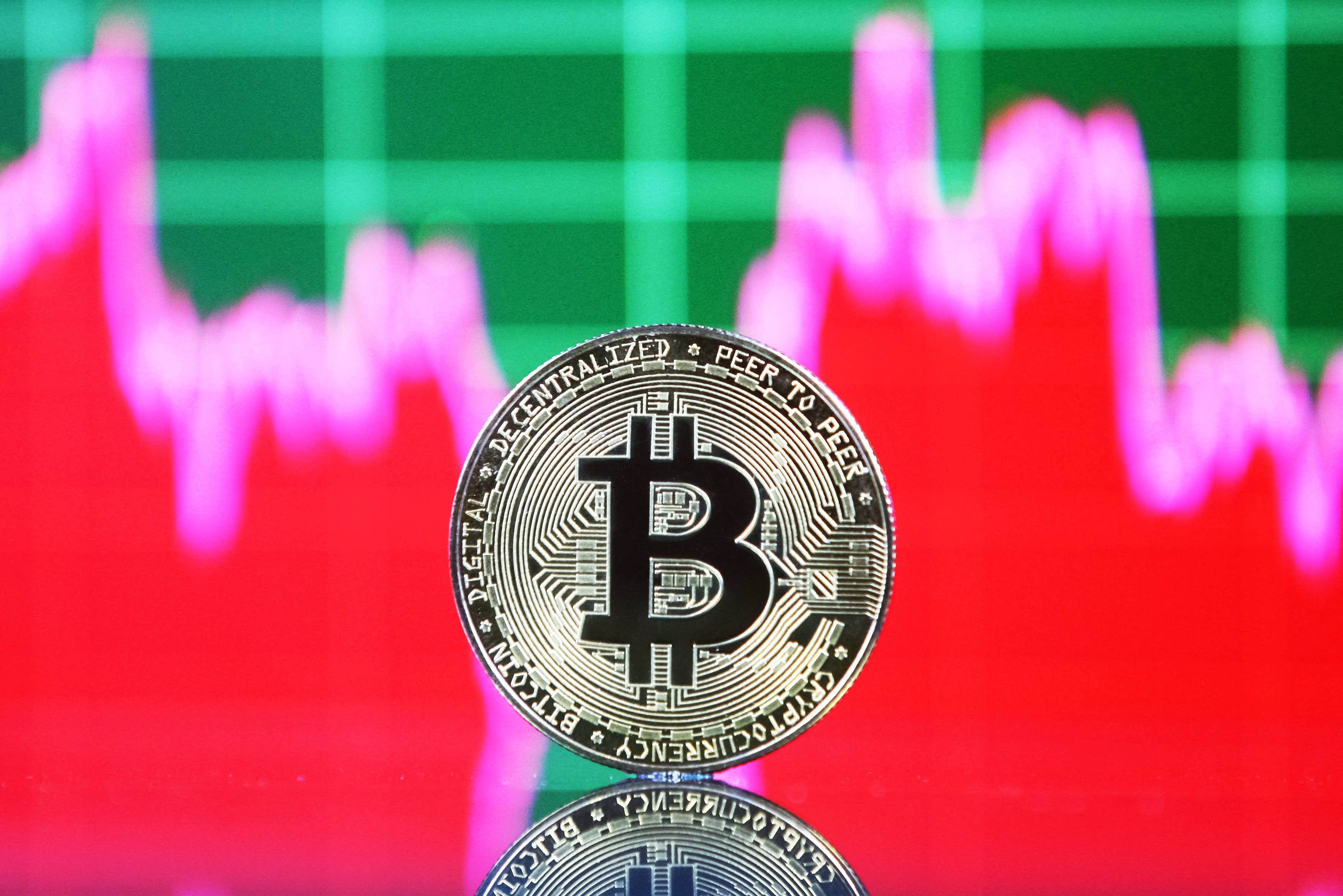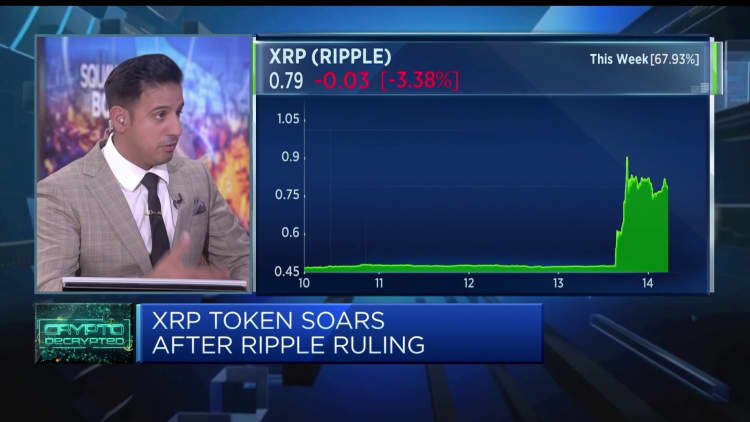
In this photo illustration a visual representation of the digital cryptocurrency ripple is shown on January 30, 2018 in Paris, France.
Chesnot | Getty Images
Blockchain startup Ripple is confident that US banks and other financial institutions in the country will begin to show interest in adopting its XRP cryptocurrency in cross-border payments after a landmark ruling determined the token was not, in and of itself, necessarily a security.
The San Francisco-based company plans to begin discussions with U.S. financial firms about using its on-demand liquidity (ODL) product, which uses XRP for money transfers, in the third quarter, Stu said. Alderoty, Ripple’s general counsel, to CNBC in an interview. last week.
Last week, a New York judge issued a landmark ruling for Ripple determining that XRP itself is “not necessarily a prima facie security”, partially disputing claims by the US Securities and Exchange Commission. United against society.
Ripple has been fighting the SEC for three years following allegations by the agency that Ripple and two of its executives conducted an illegal bid worth $1.3 billion through the sale of XRP. Ripple disputed the claims, insisting that XRP cannot be considered a security and is more like a commodity.
Ripple’s business suffered as the company lost at least one customer and one investor. MoneyGram, the American money transfer giant, dropped its partnership with Ripple in March 2021.
Meanwhile, Tetragon, a UK-based investor who previously backed Ripple, sold its stake to Ripple after unsuccessfully trying to sue the company to buy back its money.
When asked if the decision meant that US banks would switch back to Ripple to use its ODL product, Alderoty said, “I think the answer to that question is yes.”
Ripple also uses blockchain in its business to send messages between banks, much like a blockchain-based alternative to Swift.
“I think we hope that this decision will reassure customers of financial institutions or potential customers to at least come in and start discussing the problems they are having in their business, the real problems in terms of transferring value across borders. . without incurring obscene fees,” Alderoty told CNBC on Friday.
“Hopefully this quarter will generate many conversations in the US with customers, and hopefully some of those conversations will turn into real business,” he added.
Ripple now sources mostly from outside the US, with Alderoty previously telling CNBC that “(Ripple), its customers and its revenue are all generated outside of the US, although we still have a lot of employees inside the United States,” he added.

Ripple has over 750 employees worldwide, around half of which are based in the US
XRP is a cryptocurrency that Ripple uses to transfer money across borders. It is currently the fifth largest cryptocurrency in circulation, with a market capitalization of $37.8 billion.
The company uses the token as a “bridge” currency between transfers from one fiat currency to another – for example, from US dollars to Mexican pesos – to solve the problem of the need for pre-funded accounts on the other end of a transfer to wait for the money to be processed.
Ripple says XRP can enable money movements in a fraction of a second.
Still, the decision did not represent a total victory for Ripple. Although the judge said that XRP was not a security, he also said that some sales of the token were considered securities transactions.
For example, about $728.9 million in sales of XRP to institutions the company worked with were considered securities, the judge said, stating that there was a common enterprise, an expectation of profit.
Alderoty admitted that it was not a complete victory for Ripple and that the company would review the decision in due course to see how it affects its business.
“She (Judge Analisa Torres) concluded – although we disagreed with her – that our prior sales directly to institutional buyers had the attributes of a title and should have been registered,” he said. -he declares.
He said Ripple’s business as it stands would not be affected by this element of the decision, as its customers are primarily located outside of the United States.
“We will study the judge’s decision, we will look at the needs of our clients to look at the market and see if there is a situation here that is consistent with all four corners of what the judge found regarding institutions,” he said.



